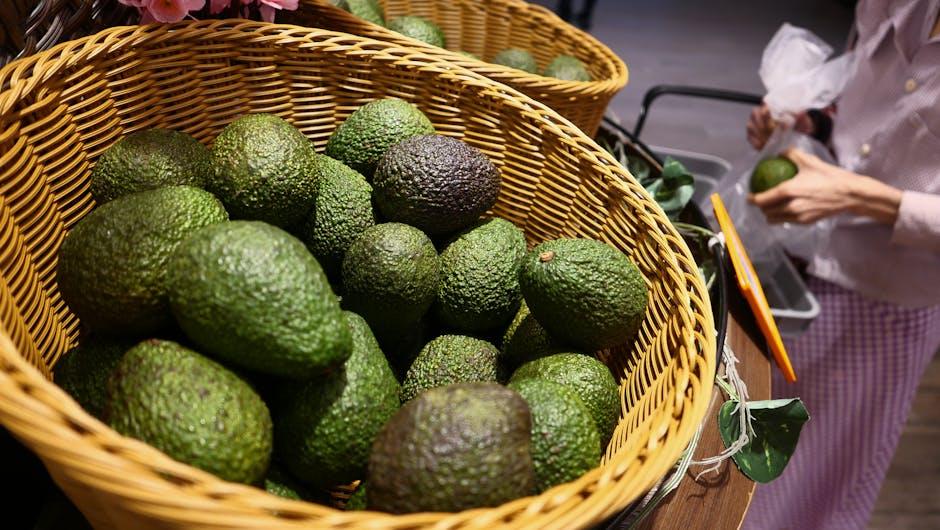In the vibrant world of keto living, sweetness often feels like a forbidden fruit, lurking just beyond reach. But for those committed to low-carb lifestyles, sweeteners that don’t tip the carb scale are game changers—unlocking a realm of flavor without the guilt. Navigating the sweetener aisle can be overwhelming, with endless options promising to satisfy cravings without derailing ketosis. In this article, we’ll explore the best low-carb sweeteners that blend seamlessly into keto recipes, offering natural and artificial choices that keep your taste buds dancing while your carb count stays in check. Whether you’re baking, brewing, or simply sweetening your morning coffee, understanding these sweeteners can transform your keto journey from sacrifice to delight.
Table of Contents
- Best Natural Low-Carb Sweeteners for Keto Success
- Exploring Sugar Alcohols and Their Impact on Ketosis
- How to Choose Keto-Friendly Sweeteners for Baking and Cooking
- Potential Side Effects and Digestive Considerations of Low-Carb Sweeteners
- Top Sweetener Brands Recommended by Keto Enthusiasts
- Q&A
- To Wrap It Up

Best Natural Low-Carb Sweeteners for Keto Success
When you’re committed to a keto lifestyle, choosing the right sweeteners matters. Natural low-carb options not only satisfy your sweet tooth but also help maintain ketosis without the unwelcome blood sugar spikes. Stevia, derived from the leaves of the Stevia plant, offers zero calories and an intense sweetness that a little goes a long way. Unlike artificial sweeteners, it boasts antioxidant properties and is widely regarded as safe for long-term use. Another favorite is Monk Fruit Sweetener, known for its subtle fruity aftertaste and zero net carbs, making it perfect for keto baking and beverages alike.
Beyond those, you’d be remiss not to consider Erythritol, a sugar alcohol naturally found in some fruits, which provides bulk and texture similar to sugar but only about 6% of the calories. It doesn’t cause cavities and has a negligible effect on blood sugar levels. For a handy comparison, here’s a quick guide to the most popular natural low-carb sweeteners:
| Sweetener | Net Carbs | Calories | Best Use |
|---|---|---|---|
| Stevia | 0g | 0 | Tea, coffee, sauces |
| Monk Fruit | 0g | 0 | Baking, smoothies |
| Erythritol | 0.2g (per tsp) | 0.2 | Baked goods, frostings |
| Allulose | 0.4g (per tsp) | 0.4 | Caramel, desserts |
Exploring Sugar Alcohols and Their Impact on Ketosis
When it comes to sweetening your keto meals without kicking yourself out of ketosis, sugar alcohols have earned a spot on many lists. Unlike traditional sugars, sugar alcohols have a chemical structure that partially resists digestion, meaning they typically cause less of a blood sugar spike. This can be a huge win for those watching their carb intake closely. However, not all sugar alcohols are created equal. Sorbitol, maltitol, erythritol, and xylitol are among the most popular, each with varying impacts on blood glucose and ketone levels. For example, erythritol is absorbed in the small intestine but excreted unchanged, making it less likely to impact ketosis, while maltitol tends to have a higher glycemic index and may slow down the ketone production process.
Understanding how each sugar alcohol interacts with your metabolism is key to maintaining your keto lifestyle effectively. Below is a quick comparison table illustrating their approximate glycemic index and typical impact on ketosis:
| Sugar Alcohol | Glycemic Index (GI) | Ketosis Impact |
|---|---|---|
| Erythritol | 0 | Minimal to none |
| Xylitol | 7 | Low |
| Sorbitol | 9 | Moderate |
| Maltitol | 35 | Higher (may disrupt) |
- Erythritol – Best for minimal blood sugar impact
- Xylitol – Slightly higher carbs but tooth-friendly
- Sorbitol – Use sparingly, may cause digestive issues
- Maltitol – Generally avoided for strict keto
How to Choose Keto-Friendly Sweeteners for Baking and Cooking
When selecting sweeteners for keto-friendly baking and cooking, it’s essential to focus on options that won’t spike your blood sugar while maintaining the taste and texture you desire. Look for sweeteners that blend well without leaving an aftertaste or altering the moisture content of your recipes. For instance, erythritol and monk fruit extract are popular because they mimic the sweetness of sugar closely without the carbs. Additionally, consider whether the sweetener caramelizes or browns during cooking to ensure your final dish has the perfect appearance and flavor.
To streamline your choices, here are some factors to weigh before picking your sweetener:
- Glycemic Impact: Opt for sweeteners with a glycemic index of zero or close to zero.
- Solubility: Choose sweeteners that dissolve well in both hot and cold liquids.
- Aftertaste: Select sweeteners with minimal to no bitter or chemical aftertaste.
- Cooking Behavior: Identify whether it browns or caramelizes to match your recipe needs.
| Sweetener | Sweetness Level | Caramelizes? | Best For |
|---|---|---|---|
| Erythritol | 70% of sugar | No | Baking, drinks |
| Monk Fruit | 150-200% of sugar | No | Desserts, sauces |
| Allulose | 70% of sugar | Yes | Caramelized goods |
| Stevia | 200-300% of sugar | No | Drinks, light baking |
Potential Side Effects and Digestive Considerations of Low-Carb Sweeteners
While low-carb sweeteners offer a delightful way to satisfy your sweet tooth on keto, it’s important to be mindful of potential side effects, especially when consumed in excess. Some sugar alcohols, like maltitol or sorbitol, can cause digestive discomfort such as bloating, gas, or even diarrhea due to their incomplete absorption in the gut. Additionally, artificial sweeteners like sucralose may affect gut bacteria balance or even contribute to increased cravings in some individuals. Understanding how your body reacts to different sweeteners is key to maintaining not only ketosis but also overall digestive harmony.
To help navigate these digestive considerations, here’s a quick glance at common low-carb sweeteners and their typical effects:
| Sweetener | Digestive Impact | Recommended Use |
|---|---|---|
| Erythritol | Generally gentle; may cause mild bloating if consumed in high amounts | Ideal for baking and drinks |
| Stevia | Minimal digestive issues; some report aftertaste sensitivity | Best for beverages and light sweetening |
| Maltitol | High likelihood of gas and diarrhea | Use sparingly; better avoided in large quantities |
| Monk Fruit | Usually well tolerated | Great for all keto recipes |
Choosing a sweetener that complements your digestive system and personal tolerance will enhance your ketogenic lifestyle without unwanted side effects.
Top Sweetener Brands Recommended by Keto Enthusiasts
When it comes to sweetening your keto recipes without derailing your macros, quality matters. Leading brands favored by the keto community focus on purity, minimal processing, and gut-friendly ingredients. Among these, Swerve is a standout for its natural erythritol base blended with oligosaccharides, delivering a clean, sugar-like sweetness without the aftertaste. Similarly, Lakanto has gained a cult following for its monk fruit extract combined with erythritol, offering a perfect balance of sweetness and keto-compliant ingredients favored for baking and beverages alike.
For those who prefer a powdered option that mimics powdered sugar, Pyure Organic is a favorite due to its organic stevia and erythritol mix, making it ideal for smoothies and desserts. Meanwhile, Wholesome Sweeteners shines by incorporating organic erythritol and stevia, appealing to keto purists seeking non-GMO and ethically sourced sweeteners. Below is a quick glance at some of these brands and their keto-friendly features:
| Brand | Main Ingredients | Best Use | Keto-Friendly Factor |
|---|---|---|---|
| Swerve | Erythritol, Oligosaccharides | Baking, Drinks | 0 Calories, No Glycemic Impact |
| Lakanto | Monk Fruit, Erythritol | Desserts, Beverages | Zero Net Carbs, Non-GMO |
| Pyure Organic | Stevia, Erythritol | Smoothies, Frosting | Organic, Vegan |
| Wholesome Sweeteners | Organic Stevia, Erythritol | General Sweetening | Non-GMO, Ethically Sourced |
Q&A
Q&A: Best Low-Carb Sweeteners for Keto
Q1: Why are low-carb sweeteners important on a keto diet?
A1: The keto diet focuses on reducing carbohydrate intake to encourage the body to burn fat for fuel. Traditional sugar spikes blood glucose and interrupts ketosis, so low-carb sweeteners offer a way to enjoy sweetness without the carbs—helping maintain ketosis and curb cravings.
Q2: What makes a sweetener “keto-friendly”?
A2: A keto-friendly sweetener has little to no impact on blood sugar or insulin levels and contains few or zero digestible carbs. It should also be minimally processed and free from fillers that add hidden carbs.
Q3: Which low-carb sweeteners are most popular among keto followers?
A3: The most popular options include stevia, erythritol, monk fruit extract, allulose, and sometimes xylitol. Each offers unique benefits in taste and texture without kicking you out of ketosis.
Q4: How does stevia rank as a keto sweetener?
A4: Stevia is natural, zero-calorie, and zero-carb, making it a keto superstar. It’s intensely sweet, so a little goes a long way. Some find it has a slight bitter aftertaste, but many appreciate its plant-based origin and stability in baking.
Q5: Can erythritol be used in all keto recipes?
A5: Yes, erythritol is a sugar alcohol that tastes very similar to sugar with almost no calories or carbs absorbed. It’s excellent in baking and beverages but may cause digestive discomfort in large amounts for sensitive individuals.
Q6: What sets monk fruit sweetener apart from others?
A6: Monk fruit extract is a natural sweetener with zero calories or carbs and no bitter aftertaste. It blends well with other sweeteners and is appreciated for its clean, fruity flavor—ideal for keto-friendly desserts and drinks.
Q7: Is allulose a good choice for keto?
A7: Absolutely. Allulose has about 70% of the sweetness of sugar but contributes only a fraction of the calories and has negligible impact on blood sugar. It also browns like sugar, which is great for baking.
Q8: Are sugar alcohols like xylitol keto-approved?
A8: Xylitol is low in carbs and has minimal blood sugar effects, making it keto-compatible for most. However, it can be toxic to pets, so use with caution. It’s also sweeter than erythritol but might cause digestive upset in some.
Q9: Can you combine these sweeteners?
A9: Yes! Many keto cooks blend sweeteners—like erythritol with stevia or monk fruit—to balance taste, reduce aftertaste, and improve texture, tailoring sweetness perfectly to their preferences.
Q10: Any tips for choosing the best sweetener for you?
A10: Consider your taste preference, digestive tolerance, and recipe needs. Start small, try different ones, and adjust to find a keto-friendly sweetener that satisfies your sweet tooth without compromising your carb goals.
To Wrap It Up
Choosing the perfect low-carb sweetener can transform your keto journey from daunting to delightful. Whether you prefer the subtle sweetness of erythritol, the full-bodied flavor of monk fruit, or the versatile charm of stevia, there’s a keto-friendly option that fits your palate and lifestyle. Remember, the best sweetener is the one that keeps your cravings at bay without tipping your carb count. So, experiment, savor, and enjoy the sweet side of keto—without breaking your carb bank. Your taste buds and ketosis will thank you.

